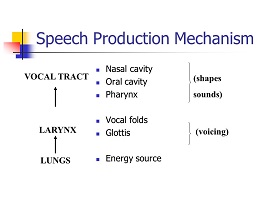Haplology definition in Phonetics examples
What is haplology
The word haplology derives from the Greek haploos meaning “simple” and logos meaning “word” or “speech“. That is, it is a simplification of the pronunciation of a word. Haplology definition
Haplology is a type of dissimilation that consists of the elimination of similar sounds or phonemes within a word. This occurs when there are two syllables that have similar sounds. For example: impossibility → impossibility.
The equivalent process in writing, in which a letter that would have to be repeated is omitted, is known as haplography.
Generally, cases of haplology are considered as language defects and can make communication difficult.
In English, some examples of haplology are:
- Engla land (Old English) → Engle lond → England / “England”
- Library → library / “library”
- Probably → probably / “probably”
February → febur y/ “February” - Urine analysis → urinalysis / “urine analysis”
Haplology in Phonetics
A sound change involves the loss of a syllable when it is next to a phonetically identical (or similar) syllable. Haplology is a type of dissimilation. Perhaps the best-known example is the reduction of Ang laland in old English to English in modern English. Haplology definition
The reverse process is known as dittology: the accidental or conventional repetition of a syllable. ( Dittology also means, more broadly, the double reading or interpretation of any text).
The counterpart of the haplología in writing is the haplography: the accidental omission of a letter to be repeated (such as errors of spelling ).
The term haplology (from the Greek, “simple, unique”) was coined by the American linguist Maurice Bloomfield ( American Journal of Philology, 1896). Haplology definition
Examples and observations Haplology definition
“Haplología … is the name given to the change in which a repeated sequence of sounds is simplified to a single occurrence. For example, if the word haplología was subjected to haplología (it haplologizaría), the sequence would be reduced lolo. To it , haplology > haplology Some real examples are:
(1) Some varieties of English reduce the library to ‘libry’ [laibri] and probably to ‘probly’ [prɔbli].
(2) pacifism < pacifism (contrast with mysticism < mysticism , where the repeated sequence is not reduced and does not end as mysticism ).
(3) The English was humbly humble in the time of Chaucer, pronounced with three syllables, but has been reduced to two syllables (only one l ) in modern standard English. Haplology definition
The words ” library” and ” necessary” , especially those spoken in southern England, are often heard by foreigners such as Libyans and necessary . But when they repeat the words as such, they don’t sound good, since there should be an elongated r and s , respectively, in those words, it shows that foreigners notice the initial stages of haplology in those words, when there is still no complete haplology “. Haplology definition
“I have often noticed that Americans, speaking of the popular salsa Worcestershire , commonly pronounced each syllable enunciated region clearly. In England, it is always Woostersh’r “.

